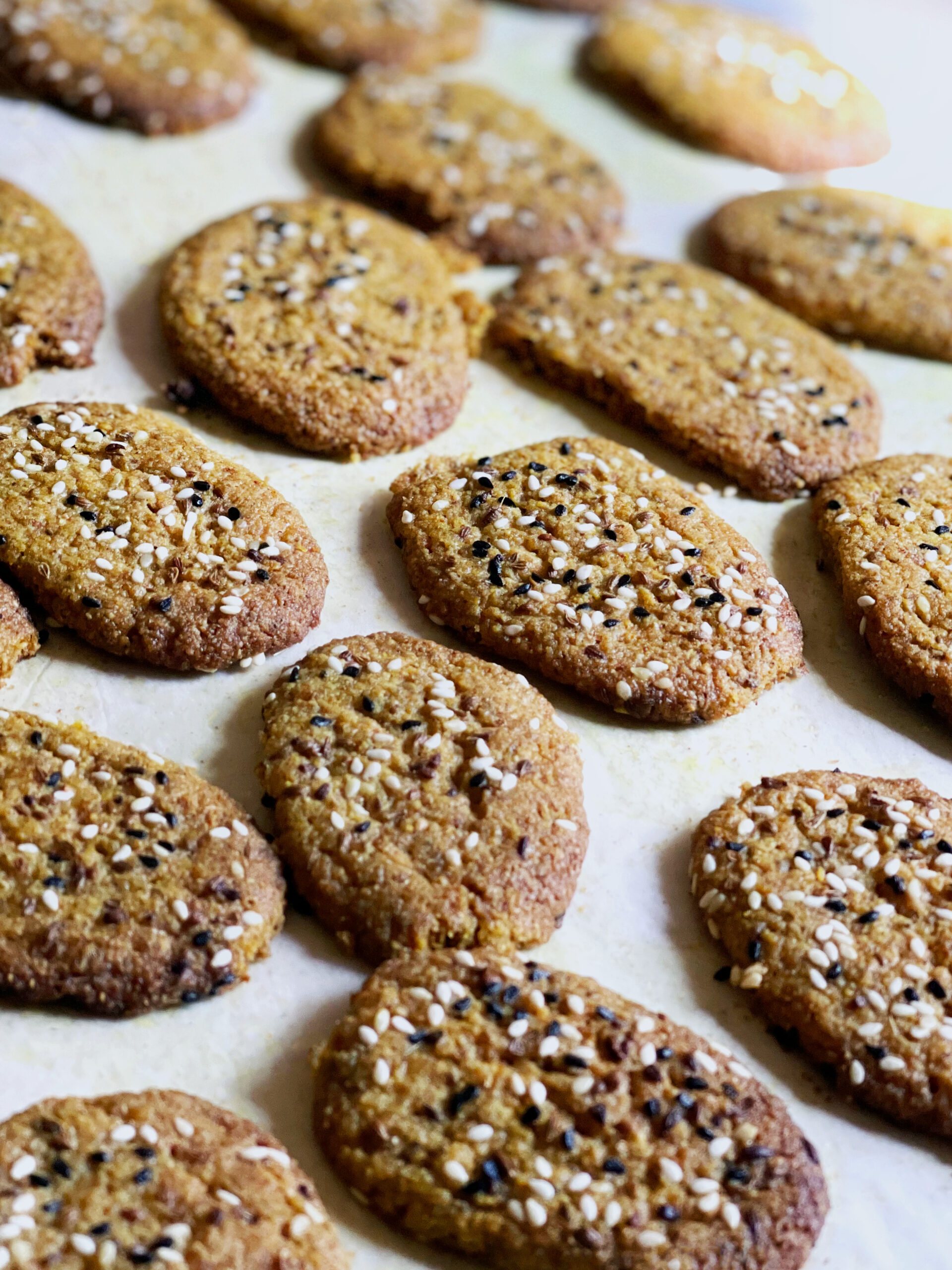Aniseed Cookies
Warming & Grounding
Qualities
Heating | digestive | Heavy
Time & Season
Occasionally
Autumn – Winter

Anise (Pimpinella anisum), also referred to as sweet cumin in English, or Motajeera in Hindi is a plant related to the Parsley family. It is sweet, pungent, and bitter in taste, and has a heating effect on the body. The flavor of aniseed is reminiscent of fennel and licorice root.
The sweet spice is used in different dishes across the Mediterranean or consumed in tea form. It is good for aiding digestion and for breaking down mucus in the body. The seeds are used as a remedy for digestive disorders such as cramping in the bowels, colic, and flatulence. They have a calming and soothing effect on the nervous system and are used to induce menstruation. This recipe is a take on the traditional Palestinian Ma’karoni or Malateet cookies, made gluten-free and low in sugar and carbohydrates.
Makes 12-15 cookies
Ingredients:
1 cup tahini
2 tbsp ground flaxseeds mixed with 5 tbsp hot water
1/4 cup granulated sweetener of choice (coconut sugar, erythritol, or Jaggery)
4 tbsp aniseed powder
1/2 tsp salt
1/2 tsp turmeric powder
1 tbsp baking powder
2 tsp vanilla extract
1 tbsp coconut flour
Garnish:
Sesame seeds
Nigella seeds
Preparation Method:
– Preheat the oven to 180°C
– Add all the ingredients to a bowl and mix well to form a dough.
– Line a baking tray with parchment paper.
– Form the cookies into short logs or circles, and sprinkle them with sesame and nigella seeds. Place the cookies on the parchment-lined tray, leaving some space between each cookie.
– Bake for 12 -15 minutes, until the bottom begins to brown. They will be soft in the middle but will firm upon cooling. Allow them to cool completely before storing them in an airtight container.
Notes:
– Kapha individuals should eat them in moderation
